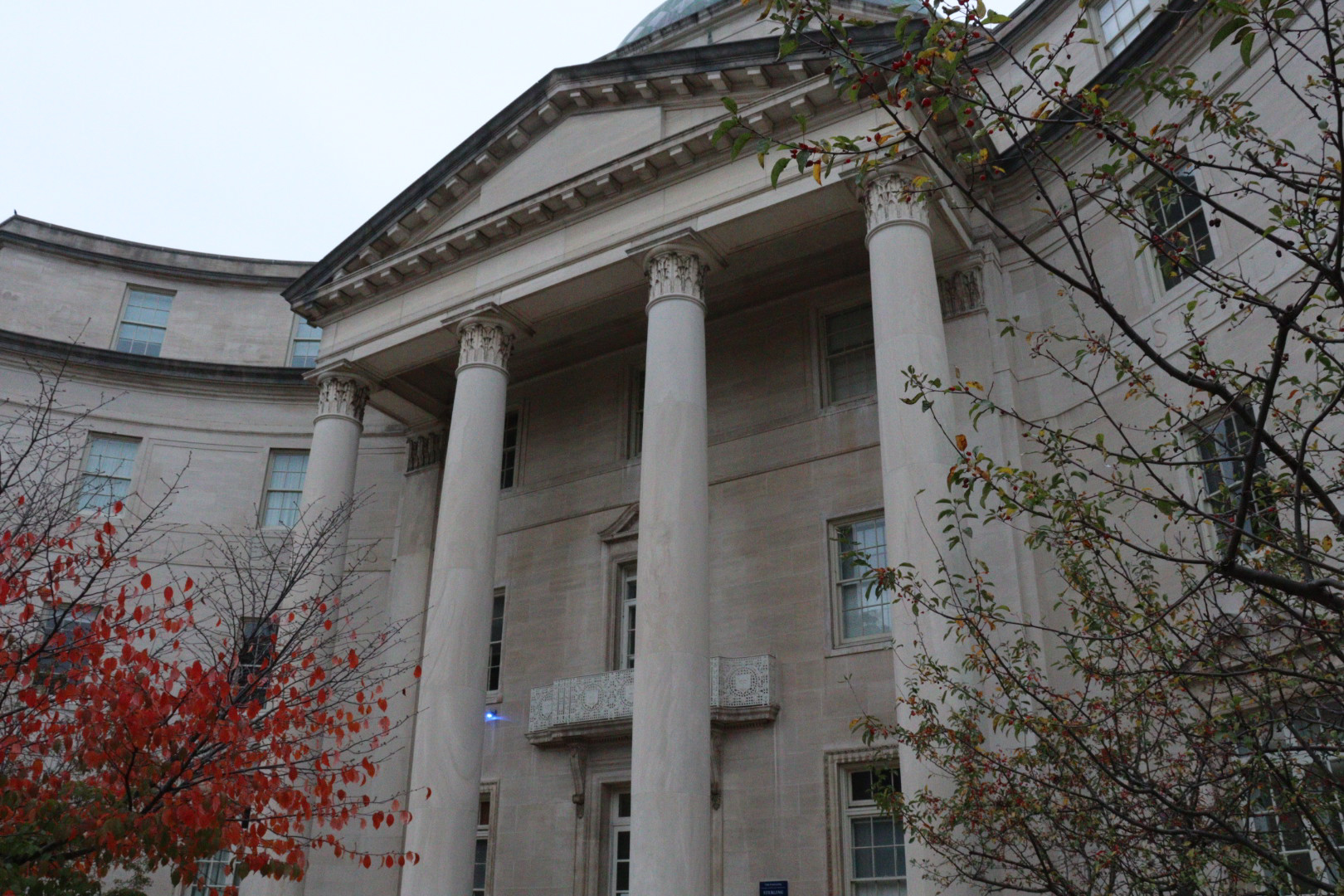Yale Urology goes clean-shaven for “No Shave November” campaign on men’s health
Yale urology doctors and professors celebrate “No Shave November” by shaving their beards and mustaches to highlight the importance of men’s health issues.

Hedy Tung
On Nov. 14, urologists from Yale New Haven Hospital and the Yale School of Medicine shaved their beards and mustaches to celebrate “No Shave November,” raising awareness around men’s health issues.
Also known as “Movember,” the concept was part of a global initiative launched by two men in Australia in 2003 to raise awareness around prostate cancer and other men’s health issues. This shave session at the School of Medicine was the second of two barbershop events that invited physicians to receive free shaves – the first of which was held at a barbershop in Old Saybrook a week prior.
“It’s the idea that men are not going to shave for the entire month of November and use that as a way to fundraise for prostate cancer [and other issues],” explained Dr. Isaac Kim, chair of the urology department and professor of urology.
Dr. Joseph Brito, the urologist who pitched the idea to the department and paid for all the shave sessions, mentioned that department staff came and got their beards trimmed and shaped up. He also underscored the importance of raising awareness of these issues.
“These are quite common things that will affect men at various points in their lives, and you shouldn’t feel isolated if you get a diagnosis of prostate cancer or you’re struggling with mental health issues,” Brito told the News.
In the past at Yale New Haven Hospital, “No Shave November” was an opportunity for men to visit and be checked for prostate cancer. However, Brito cited controversy around changing prostate cancer screening guidelines by the U.S. Preventive Services Task Force (USPSTF) that led to the initiative’s decline. The task force was led by mainly statisticians and lacked the presence of urologists on the task force.
Brito compared the changing guidelines to a “pendulum.” In the early 2000s, screenings were widely adopted, and men were having treatment, surgery, and radiation therapy for low-grade prostate cancers.
“Such treatment wasn’t necessarily needed for these lower-grade cancers, and we didn’t know that at the time,” Brito said.
Then, in 2012 the USPSTF recommended against routine prostate cancer screenings for average-risk patients. As a result, many primary care doctors stopped regularly checking for prostate cancer in all patients, only conducting them in certain cases.
After this change, Brito and Kim said, urologists started encountering patients with more advanced diseases.
“We were kind of dumbfounded because urologists weren’t really part of the recommendation development process,” said Brito.
Now, according to the latest guidelines revised in 2018, the USPSTF advises prostate screenings to be a shared decision between the patient and urologist. Other societies, like the American Urological Association and American Cancer Society, also advocate for the screening.
“I tell my patients upfront, there is no universal consensus of whether they should be screened or not,” Kim said. “It’s a pretty muddied-up landscape right now, but if you talk to a urologist, we tend to advocate for thoughtful screening,” Kim said.
Brito highlighted the importance of other aspects of men’s health, like testicular cancer and mental health issues, that the initiative seeks to bring attention to.
“With testicular cancer, there’s no real screening process, so it’s important to make men aware that first, it can happen, and second, knowing what age groups it happens,” he said.
Brito distinguished the age group prostate cancer from testicular cancer, mentioning that testicular cancer is “a young man’s disease,” impacting men in their mid-teens to mid-30s.
He also cited a large uptick in mental health issues like rising suicide rates and substance abuse rates in men since the pandemic.
“I think in a lot of men, there’s a tendency to ignore that stuff and have this macho outlook on life. But just like many other illnesses, if you ignore those things for too long, things bubble to the surface,” Brito said.
Kim also cited the overall need for men to advocate more for their health.
Throughout the year, the urology department also hosts other events to engage Yale physicians, School of Medicine alumni, and the New Haven community. Events include medication education events for physicians to learn about the latest urologic health issues and lecture series at the hospital open to the community and at local community centers.
As for the future of “No Shave November,” Brito aims to expand its reach.
“Next year, we’re planning to make it a larger event, with community outreach aspects and educational materials, and get some people from the community invited as well,” Brito said.
Around Yale College, students like Kyle Robik ’26 are also honoring “No Shave November.” He is growing out his facial hair to remind others of prostate cancer and to make sure men get their prostate checked.
Jacob Biggs ’25, president of Delta Kappa Epsilon, shared his fraternity’s involvement in the initiative.
“The problems that Movember is addressing are significant to us because we’ve had brothers who have been personally affected by these issues, and Movember provides us an avenue to reduce the impact of these problems moving forward,” Biggs wrote to the News. “We are doing a campaign this year in partnership with [the charity] Movember … and some brothers have chosen to support them by growing mustaches.”
So far, they have raised $1,845. For others, the month is a time to try new things.
“I was initially compelled to do ‘No Shave November’ because I’ve never been someone who had any facial hair and the high school I went to required complete shaving,” Joshua Young ’26 said. “So I thought this was a very fitting and appropriate time to try it out.”
The Yale Department of Urology is located at 333 Cedar St.







